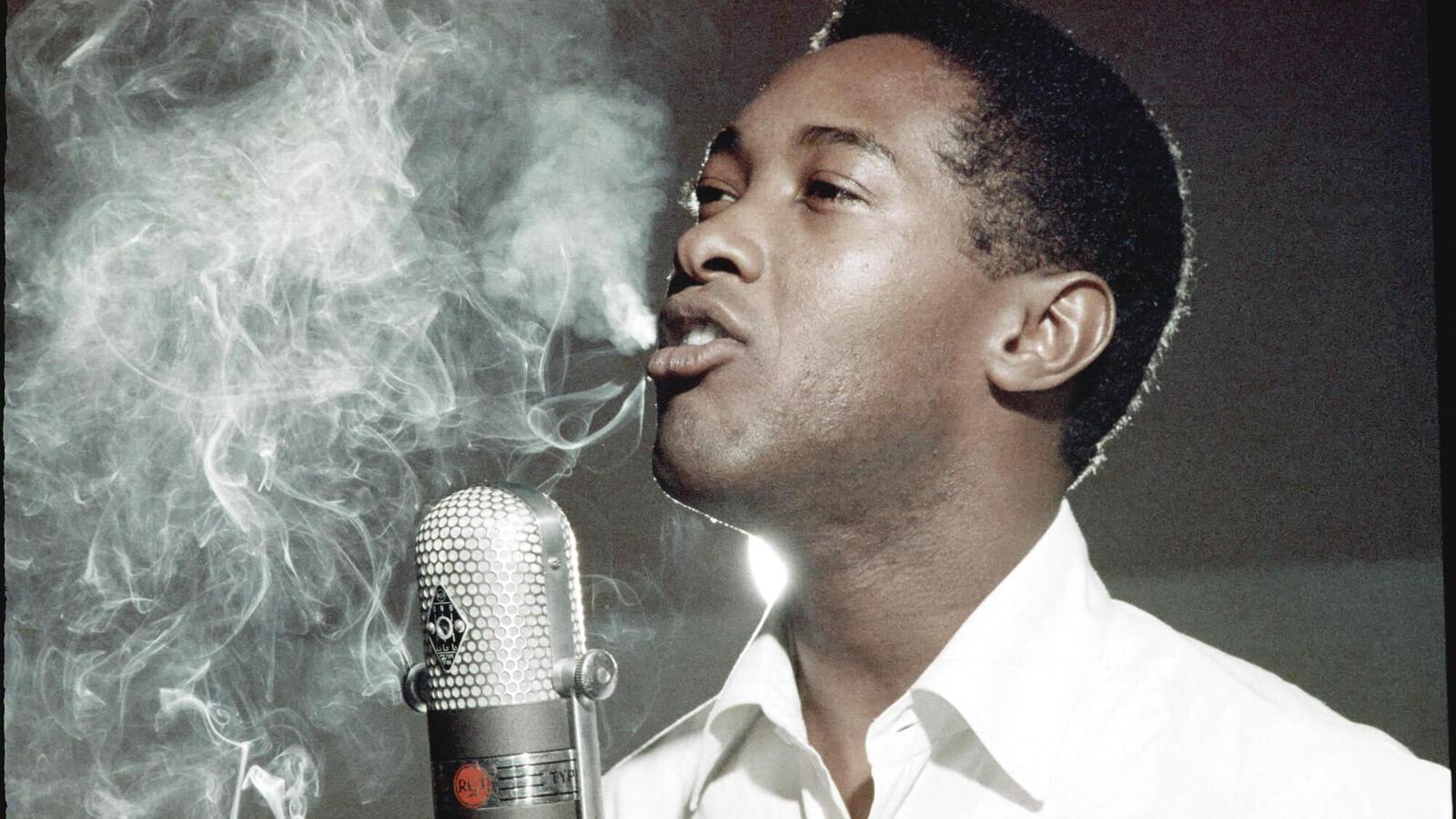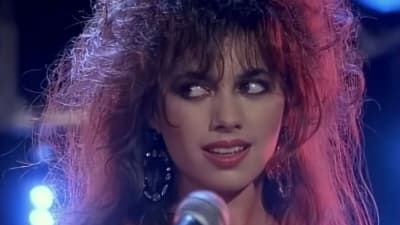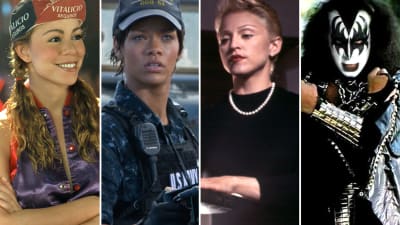One of the cool things about music is how artists can be a voice for the voiceless. Throughout music history, artists have used their music to inspire change and fight against injustices and inequality. From Public Enemy to John Mayer, here's a list of songs that encourage people to make the world a better place.
1 of 20
“Alright” by Kendrick Lamar
Erika Goldring/FilmMagic
Black people are constantly faced with racism, discrimination, and inequality in America. These issues are typically shown on a global scale whenever a police brutality incident occurs, and people take to the streets to protest against the boys in blue. When these incidents occur, sometimes Black Americans need something uplifting to give them hope, that’s where Kendrick Lamar’s 2015 single “Alright” comes in. Lamar highlights that Black people have constantly dealt with pain and suffering, but there’s hope at the end of the tunnel. “Alright” became an unofficial track for the Black Lives Matter movement as protests ensued.
2 of 20
“Where Is The Love?” by Black Eyed Peas
Christopher Polk/Getty Images for Clear Channel
“Where Is The Love?” is the lead single from the Black Eyed Peas’ third album Elephunk. On the track, the group details finding hope and peace while dealing with racism, terrorism, and police brutality. As they say on the track, “Yo, whatever happened to the values of humanity? / Whatever happened to the fairness and equality? / Instead of spreading love, we spreading animosity / Lack of understanding leading us away from unity.”
3 of 20
“Imagine” by John Lennon
Vinnie Zuffante/Getty Images
John Lennon believed in unity in his 1971 single “Imagine.” He wants to imagine a world of peace without any division or conflict. His stance is evident in the second verse as he sings, “Imagine there’s no countries / It isn’t hard to do / Nothing to kill or die for / And no religion too / Imagine all the people living life in peace.”
4 of 20
“Talkin’ Bout a Revolution” by Tracy Chapman
John Shearer/Getty Images for The Recording Academy
In 1988, Tracy Chapman came onto the scene with her self-titled album, which featured the single “Talkin’ Bout a Revolution.” On the track, Chapman details different instances of people being oppressed such as people on welfare and unemployment. However, Chapman encourages people to rise up and start a revolution against the systems that hold them back.
5 of 20
“Waiting on the World to Change” by John Mayer
Jason Kempin/Getty Images
In 2006, John Mayer released his third album Continuum which featured his hit single “Waiting on the World to Change.” On the track, Mayer details how people see so much wrong going on in the world and often feel powerless. As he sings on the track, “Now we see everything that's going wrong / With the world and those who lead it / We just feel like we don't have the means / To rise above and beat it / So we keep waiting / Waiting on the world to change.”
6 of 20
“Fight the Power” by Public Enemy
Michael Ochs Archives/Getty Images
Public Enemy has always been known as the group to call out political issues such as racism or corrupt media. It’s no wonder that Oscar-winning director Spike Lee called on the group to create a song for his 1989 film Do The Right Thing, and that’s when their song “Fight the Power” was born. On the track, the group highlights how people need to come together on one accord and revolutionize for change.
7 of 20
“Say It Loud, I’m Black and I’m Proud” by James Brown
KMazur/WireImage
James Brown is all about being confident and proud of his roots in his hit song “Say It Loud: I’m Black and I’m Proud.” In the first verse, he describes how Black people have been treated poorly, but deserve equal rights. He then goes on to describe how he’s tired of working for other people and encourages people to work for themselves.
8 of 20
“A Change is Gonna Come” by Sam Cooke
Jess Rand/Michael Ochs Archives/Getty Images
Sam Cooke’s rise in the music industry came during the Jim Crow era, and unfortunately, he faced different racist instances particularly in the South, no matter how famous he was. An incident at a hotel was the inspiration for Cooke to create the song “A Change is Gonna Come.” With the lyrics of hoping for change, it’s no wonder the song became a theme during the Civil Rights Movement.
9 of 20
“This Is America” by Childish Gambino
Kevin Winter/Getty Images
On Childish Gambino’s 2018 single “This Is America,” the rapper paints the picture of the Black experience in America. In the music video, Gambino is seen dancing with a group of kids, but in the background, there are chaotic scenes of riots and gun violence. The juxtaposition between Gambino in the front and the chaos in the back, shows that Black Americans are simply trying to find some joy while dealing with pain.
10 of 20
“What’s Going On” by Marvin Gaye
Gems/Redferns
Marvin Gaye released “What’s Going On” in 1971, and the message in the song still rings true over 50 years later. At the time of creation, Gaye was taken aback by the different instances of violence and suffering going on in the world such as riots and wars. As he sings in the second verse, “Father, father / We don’t need to escalate / You see, war is not the answer / For only love can conquer hate.”
11 of 20
“We the People….” by A Tribe Called Quest
John Sciulli/Getty Images for Samsung
After an 18-year hiatus as a group, A Tribe Called Quest reunited for their final album We Got It from Here… Thank You 4 Your Service. On the album’s lead single “We the People…” the group details different issues in America such as police brutality, discrimination, and deportation. The song became a top 40 hit on the Billboard Hot R&B/Hip-Hop Songs chart.
12 of 20
“Dear Mr. President” by P!nk feat. Indigo Girls
Matthew Baker/Getty Images
In 2006, P!nk released her fourth album I’m Not Dead which featured the single “Dear Mr. President.” P!nk uses the track as an open letter to then-President George W. Bush and calls him out on his policies. As she says on the second verse, “How can you say ‘No child left behind’? / We’re not dumb and we’re not blind / They’re all sitting in your cells / While you pave the road to hell.”
13 of 20
“This Land” by Gary Clark Jr.
Gus Stewart/Redferns
On Gary Clark Jr.’s 2019 single “This Land,” the singer details his frustrations of dealing with racism in his neighborhood. He highlights how a neighbor keeps questioning if he owns his home. As he sings on the pre-hook, “Well I know you think I’m up to something / I’m just eating, now we’re still hungry / And this is mine now, legit / I ain’t leaving and you can’t take it from me.”
14 of 20
“Livin’ In A World (They Didn’t Make)” by Janet Jackson
Bennett Raglin/Getty Images for Essence
Janet Jackson’s fourth studio album Rhythm Nation 1814 was a conceptual project that was centered on themes of social issues. On the track “Livin’ In A World (They Didn’t Make),” Jackson details how children are born innocent into a world filled with hate. The song’s concept was inspired by a school shooting that occurred in Stockton, California. Towards the end of track, Jackson uses audio from a news segment that details the shooting. Unfortunately, America still deals with mass shootings to this day.
15 of 20
“Change” by Mavis Staples
Jeff Hahne/Getty Images
In 2019, Mavis Staples released her fourteenth album We Get By led by her single “Change.” On the track, Staples pleads for people to live free and peacefully.
16 of 20
“They Don’t Care About Us” by Michael Jackson
Kurita KAKU/Gamma-Rapho via Getty Images
Michael Jackson called for a world without racism and with human rights for all in his 1995 single “They Don’t Care About Us.” As he sings on the track, “And tell me, what has become of my rights? / Am I invisible ‘cause you ignore me? / Your proclamation promised me free liberty now.” The song became a top-40 hit on the Billboard Hot 100.
17 of 20
“Get Up, Stand Up” by Bob Marley & The Wailers
Paul Natkin/WireImage
Bob Marley was inspired to write “Get Up, Stand Up” after witnessing poverty during a visit to Haiti. Marley is well aware that access to food is a basic human right that everyone should have, so the song highlights that people need to stand up for what’s right.
18 of 20
“Freedom” by Beyoncé feat. Kendrick Lamar
Paras Griffin/BET/Getty Images for BET
Beyoncé and Kendrick Lamar team up for the first time on her 2016 single “Freedom.” On the track, the two highlight people dealing with struggles, police encounters, and slavery, while encouraging listeners to push for liberation. The song became an unofficial anthem for the 2020 George Floyd protests, and the official song for Kamala Harris’ 2024 presidential campaign.
19 of 20
“The Power of Equality” by Red Hot Chili Peppers
Anna Webber/Getty Images for SiriusXM
In 1991, rock band Red Hot Chili Peppers released their fifth album Blood Sugar Sex Magik, which kicks off with the first song “The Power of Equality.” On the track, the band highlights that equality isn’t given to every person and how some politicians have their own agendas, so they’re ready to see some change in the world.
20 of 20
“The Revolution Will Not Be Televised” by Gil Scott-Heron
Echoes/Redferns
In 1971, Gil Scott-Heron released his powerful anthem “The Revolution Will Not Be Televised.” On the track, Scott-Heron encourages people that in order that to see change, they need to fight for it.

 +
+




























